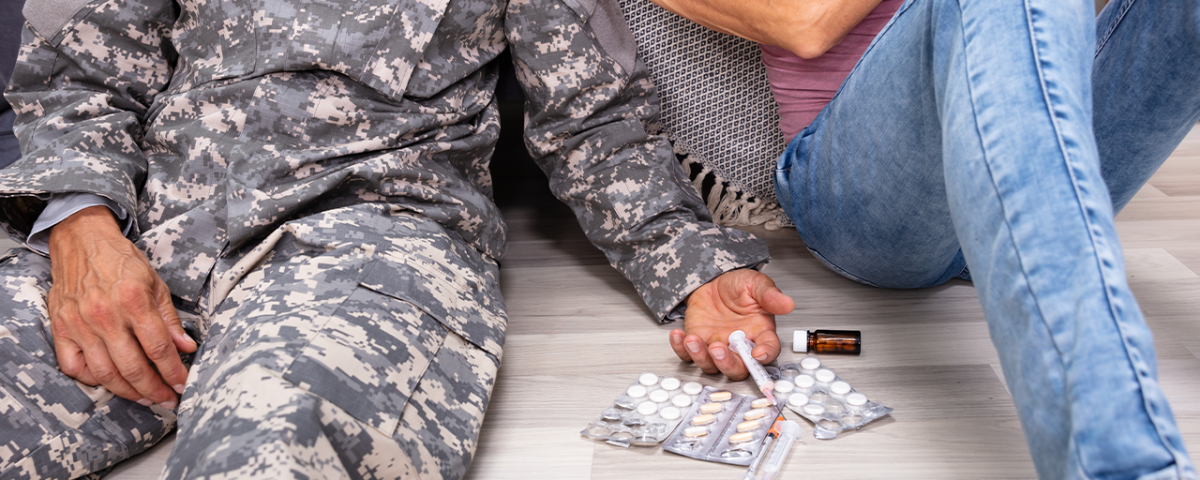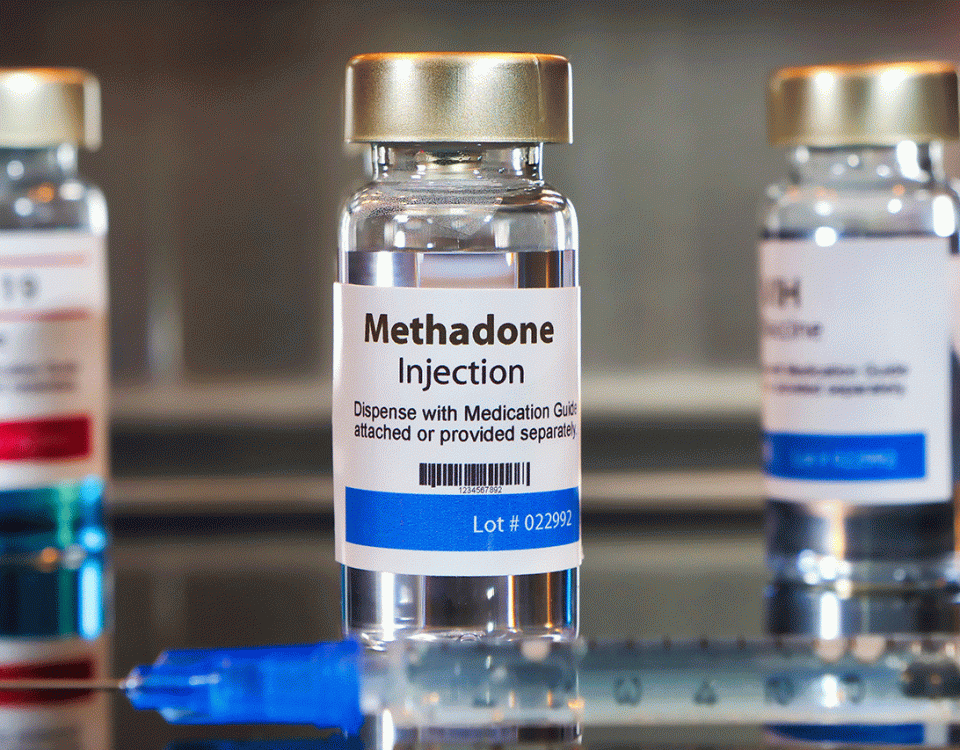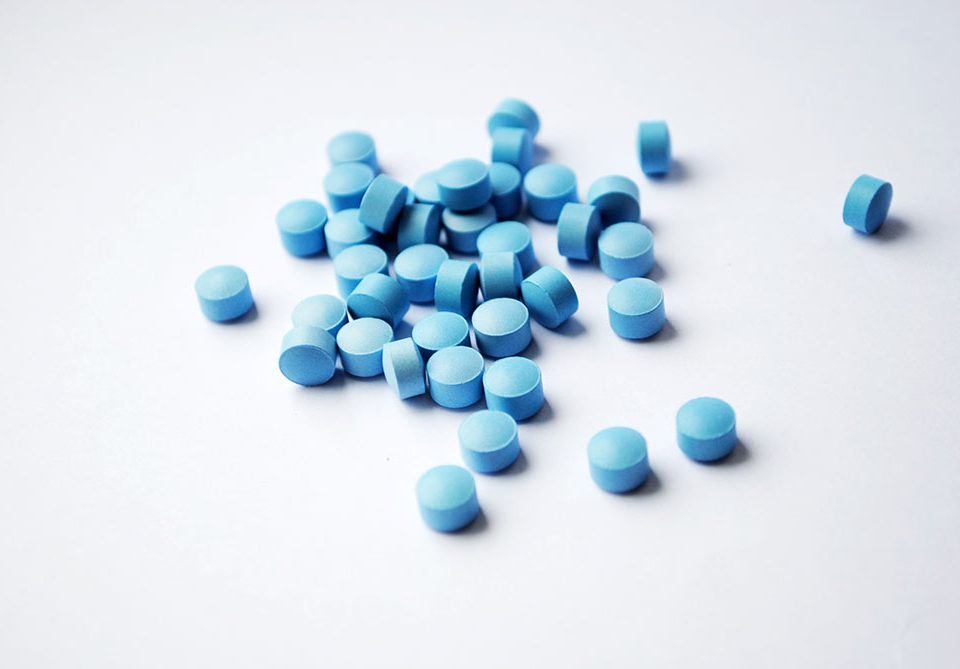The national opioid epidemic affects every demographic, but none as heavily as veterans. According to research conducted by the Secretary of Veterans Affairs on veterans and opioid overdose, veterans are twice as likely to die from an overdose than civilians.1 When taking a broader perspective, research shows that more than 47,000 Americans died of an opioid overdose (130 per day) in 2017 alone.2 And considering that only 6 million of the 19.9 million veterans are using VA healthcare, we can safely assume that a lot of these individuals aren’t receiving the help they need. Below is more information about opioid use among veterans and the drug addiction treatment for veterans offered at Banyan.
Veterans and Opioid Addiction
Opioid use among veterans is linked to a high rate of injury and chronic pain. Veterans often suffer from physical ailments that are the result of injury and trauma experienced in deployment. For this reason, veterans and opiates have a distinct and ongoing relationship.
Common combat injuries in veterans include second and third-degree burns, broken bones, nerve damage, paralysis, shrapnel wounds, brain injuries, spinal cord injuries, loss of sight and hearing, limb loss, and post-traumatic stress disorder (PTSD).3 Mental health disorders like PTSD, depression, and anxiety are common in veterans, each of which can contribute to substance abuse.
According to veteran substance abuse statistics, more than 9% of veterans reported severe pain, compared to 6.4% of non-veterans, putting the former at higher risk for accidental opioid overdoses.4 Additionally, from 2001 to 2009, the percentage of veterans receiving opioid medications for pain increased from 17% to 24%.5 Similarly, the opioid overdose rate among veterans increased from 14% in 2010 to 21% in 2016.6
While all veterans may be at an increased risk of opioid abuse, below are specific risk factors for opioid use disorder in veterans that could increase their risk:
- Multiple Deployments/Tours: Adjusting from deployment to civilian life with spouses and kids can cause significant stress on veterans. Many of them wake up at home days after returning from deployment to find that they feel useless or as if they’ve lost purpose. Relationships may also have been strained by the amount of time they’ve spent away from home, meaning marriages and relationships with children may have to be rebuilt. Due to this stress, those who experience multiple deployments are at a higher risk of opioid abuse.
- Combat Exposure: Experiencing combat can cause stress and trauma. As a result, alcohol abuse in veterans and military personnel is a common coping method.
- Related Injuries: The misuse of prescription opioids like Vicodin and Oxycontin is prevalent in the veteran community as these drugs are commonly prescribed to treat severe and chronic pain. The wide availability of these substances poses a great risk for opioid addiction in veterans who have been prescribed medication to treat combat-related injuries and pain.
Many individuals turn to drugs and alcohol to cope with mental illness, as well. Unfortunately, the Journal of Addictive Diseases found that veterans underestimate their risk for opioid overdose, exposing a dire need for opioid addiction treatment and overdose prevention among this demographic.7
Signs of Veterans Opioid Use Disorder
If you’re concerned that a loved one may be addicted to opioids, below are some signs of veteran opioid use to look out for:
- Changes in exercise habits
- Changes in sleep habits
- Decreased libido
- Doctor shopping or going to different doctors for multiple prescriptions
- Drowsiness
- Frequent flu-like symptoms
- Inability to control how much or how often they use opioids
- Inability to feel pleasure (anhedonia)
- Isolation from family or friends
- Neglecting responsibilities at home or work
- New financial difficulties
- Poor hygiene
- Sedation
- Slurred speech
- Stealing from family, friends, or businesses to buy more drugs
- Uncontrollable cravings
- Weight loss
Veterans and opioid abuse research also show that opioid dosage was the factor most consistently analyzed and associated with an increased risk of overdose. Other factors include concurrent use of sedatives and extended-release opioids and the presence of substance use and other mental illnesses.2 Therefore, be mindful of opioid use signs in veterans if they suffer from combat-related injuries or mental health disorders.
Treating the Veterans Opioid Crisis
If you or someone you know is a veteran with an opioid use disorder and/or a mental health disorder, our Military and Veterans in Recovery program can help. Banyan Treatment Centers offers veterans and military drug rehab programs that include medical detox, substance-specific treatment, and mental health care to aid in clients’ full recovery.
Call Banyan Treatment Centers today at 888-280-4763 or send us your contact information to be connected with a team member.
Sources:
- Newsday - Fighting pain and addiction for veterans
- U.S. Department of Veterans Affairs - The Opioid Crisis: Treating Our Nation's Veterans
- Watson Institute - U.S. & Allied Wounded
- NIH - Severe Pain in Veterans: The Effect of Age and Sex, and Comparisons With the General Population
- NIH - Substance use disorders in military veterans: prevalence and treatment challenges
- American Journal of Preventive Medicine - Changing Trends in Opioid Overdose Deaths and Prescription Opioid Receipt Among Veterans
- NIH - Military Veterans’ Overdose Risk Behavior: Demographic and Biopsychosocial Influences
Related Reading:
Heroin Addiction in Veterans: Signs, Side Effects, & Treatment








